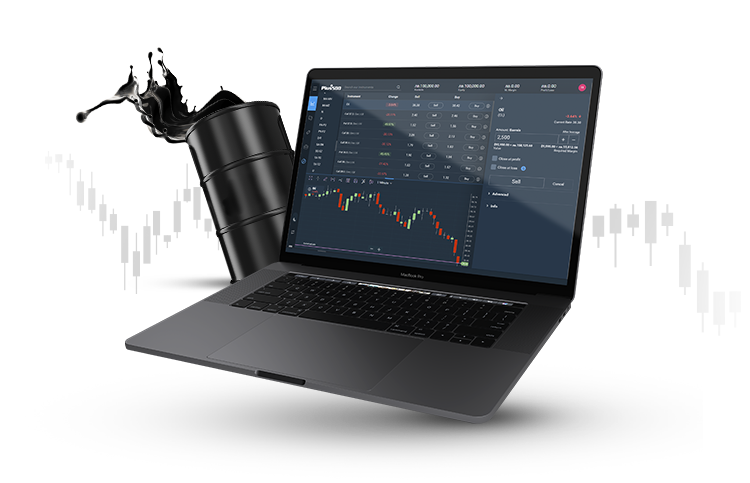What Are Crude Oil Futures & Options?
When people think of the price of Oil, they generally think of what it would cost to buy Oil right now. In a standard retail environment, the price at which you buy something, known as the spot price, is the price that is listed.
In reality, the publicly traded price of Oil is reflective of the Future’s price from a specific location.
Oil Futures CFDs
Future contracts are an agreement between producers and consumers to lock in a purchase price for a transaction at a later date.
What are Oil Futures?
When speaking about Oil, like many other commodities, it is necessary for wholesale producers to lock in a price before delivery to the consumer. This allows them to better manage expenses and predict costs.
For example, a Gasoline refinery needs 100,000 barrels of Oil for delivery at the end of next month. Instead of making a purchase on the day it needs the delivery for the spot price, it will lock in a price with an Oil producer now at $50 per barrel and accept delivery of the commodity at a later date. This contract is a commitment for a transaction to occur at a later day, at the agreed upon rate, regardless of the publicly traded value of a barrel of Oil.
Simply put, futures are a contract for a transaction that will happen in the future.
Trading Oil CFDs
Traders on Plus500 have access to Brent (EB), West Texas Intermediate (CL), and other instruments. The value of these contracts rise or fall depending on various factors, presenting traders opportunities to go long or short on the value of these contracts before they reach maturity.
The benefit of trading Oil futures CFDs with Plus500 is the ability to trade on the underlying assets without having to manage the fees or maintenance responsibilities of an actual Oil futures contract. In addition, Plus500 offers traders tight spreads, leveraged trades, and rapid executions.

Illustrative prices.
Trading Oil Options
Oil Options are contracts that grant the contract holder an option to execute a purchase at a later date at a predetermined price. This differs from a futures contract since it is not a commitment to buy.
For example, the Gasoline refinery signs an options contract for 100,000 barrels of Oil for $50 per barrel with delivery scheduled for the end of next month. The Oil producer agrees to this term on the condition that the refinery pay an upfront fee to generate the contract. The refinery now needs to take into account that their cost will be the price per barrel, plus the price of the contract.
Before the contract expires, the refinery can choose to exercise the option for $50 per barrel or it can try to find a better price on the open market. If it finds a better price, it will allow the option to expire, losing the premium but saving by buying the commodity elsewhere at a lower price.
Trading Oil Options CFDs
Oil Options traders are not trading on the price of purchasing the commodity, rather on the price of the Option contract itself. If an options contract holds the option to purchase Oil at $50 per barrel, but the spot price per barrel has jumped to $55 per barrel, that can lead to a $500,000 savings for a refinery, should this option be executed. This increases the value of the contract itself.
On the other hand, if the spot price of Oil drops to $45 per barrel, the option to purchase at $50 doesn’t make sense and thus cancels out the contract’s value.
The benefit of trading Oil Options CFDs with Plus500 is that you are still able to trade on the movement of Oil, without opening a position on the value of the commodity. Instead, you are trading on the value of the Options Contract, potentially at a lower price and with leverage.
Besides the price of the underlying assets, there are many other factors that influence the value of Options, and correspondingly that of Options CFDs. At the same time, Options traders should always remain aware of their trades as Options are highly volatile instruments that can see sudden price fluctuations.
Trading CFDs on Oil Futures and Options allows traders a variety of opportunities to speculate on this, and other popular commodities. Due to their high risk, Options are recommended for experienced traders who are prepared to trade on highly volatile instruments which can rise and fall without notice. You can learn more about how these work in our Trader’s Guide.
